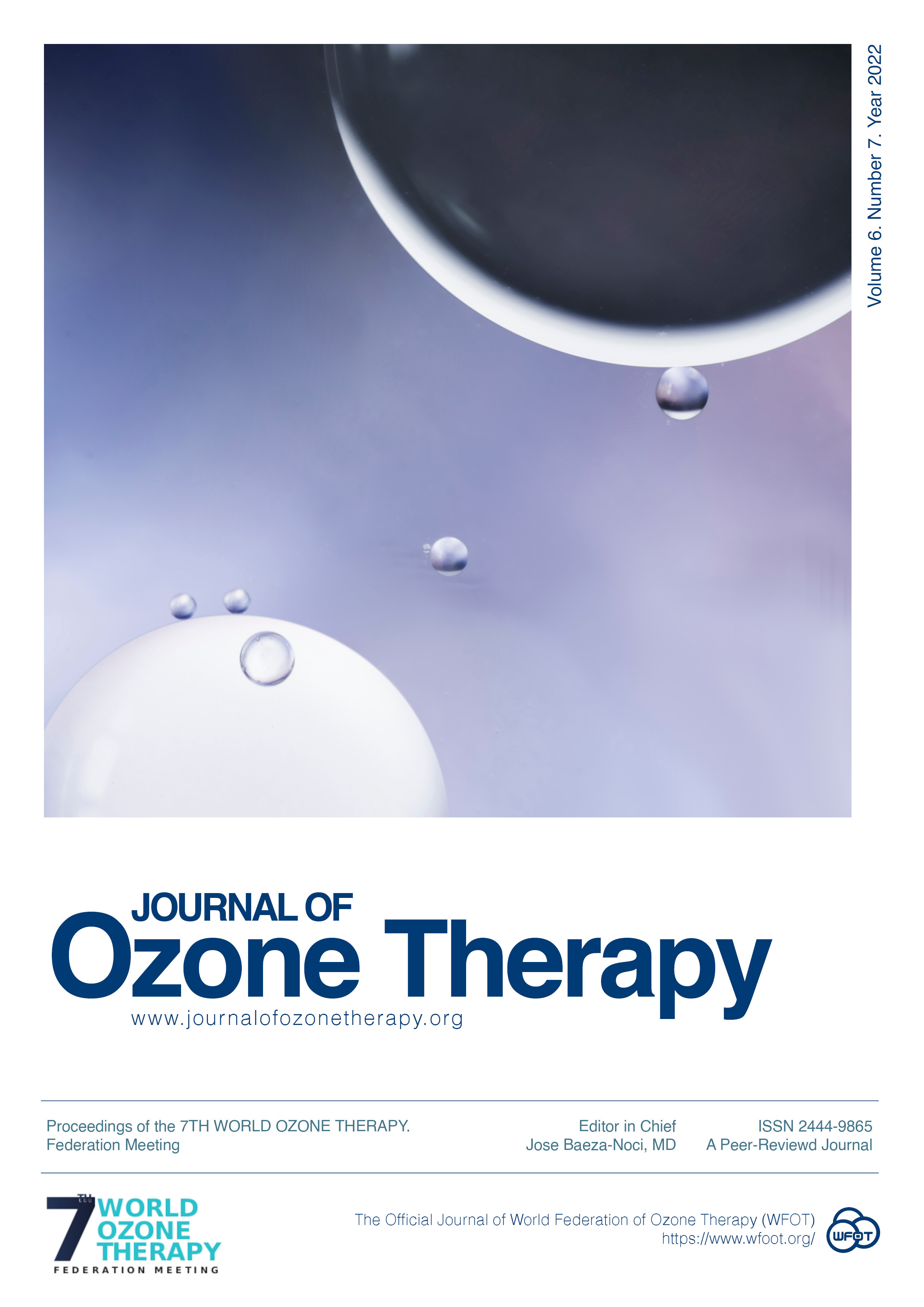Ozone therapy - present and perspective.
DOI:
https://doi.org/10.7203/jo3t.6.7.2022.25992 摘要
摘要
This work connects extensive literature research of the last three decades on medical ozone and the personal clinical experience (more than ten years) of ozone therapy.
Classical and more recent concepts were considered: hormesis and lowdose concept, ozone action through messenger-molecules – reactive species (well-studied H?O? and 4-HNE), their implication in the redox homeostasis and in cellular signalling and the consecutive cellular response by adaptation or apoptosis. Another issue in the therapy is a correct diagnosis – based on molecular mechanisms. Many current diseases are sharing commune etiopathogenesis – redox homeostasis alteration, mitochondrial dysfunction, chronic inflammation, endothelial disturbances, early cellular senescence, accelerated apoptosis. As such, a new therapeutic concept aimed to adjust these mechanisms appeared: “Many diseases - One therapy”, and the ozone fits perfectly to this pattern.
The mentioned diseases and their complications have a tremendous emotional and social impact on the patients and their families and a negative economic effect on society. If ozone therapy is correctly applied – proper diagnosis, low/medium doses, standard and safe procedures, complementary to the specific treatment/diet of undergone conditions – it will act on numerous diseases, improving the clinical status, stimulating the healing process, practically without side effects. Despite the O3 clinical efficacy, its potential toxicity as a strong oxidant is a cause for concern. This occurs when the doctor does not correctly evaluate the oxidant status of the patient, while he is not aware of the disease etiopathogenesis and/or when he applies inadvertent ozone operational procedures. Future works, especially controlled randomized studies, are necessary to demonstrate the efficacy and safety of ozone therapy and whether these effects persist over time.
 Downloads
Downloads
Downloads
已出版
How to Cite
-
摘要271
-
PDF 185
期
栏目
License
Journal of Ozone Therapy applies the Creative Commons Attribution-NonCommercial 4.0 International License (CC BY NC 4.0) license to works we publish.
Under this license, authors retain ownership of the copyright for their content, but allow anyone to download, reuse, reprint, modify, distribute and/or copy the content as long as the original authors and source are cited. No permission is required from the authors or the publishers.
You may not use the material for commercial purposes.
Appropriate attribution can be provided by simply citing the original article, provide a link to the license, and indicate if changes were made.
You may do so in any reasonable manner, but not in any way that suggests the licensor endorses you or your use.




